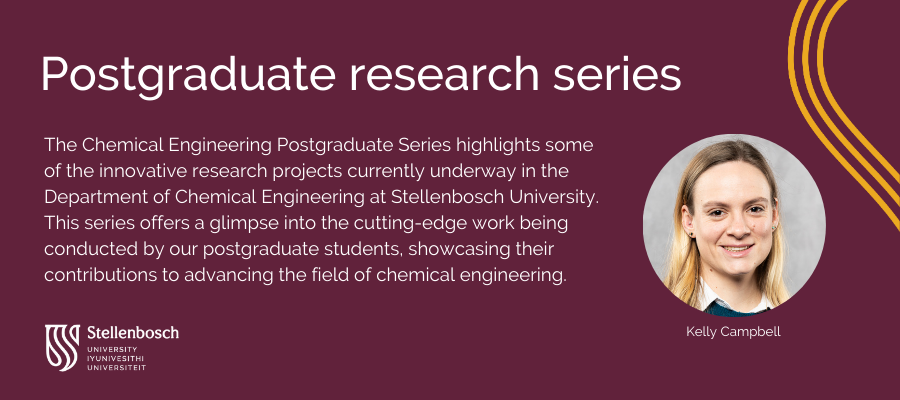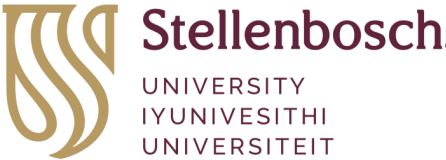
As South Africa introduces stricter waste management regulations, innovative solutions for managing food waste are increasingly important. In 2019, legislation was enacted to prevent the landfilling of wastes with a moisture content greater than 40%, and the Western Cape plans to impose a 100% ban on organic waste to landfill by 2027. Food waste, generated throughout the food chain from households and restaurants to retailers and production facilities, presents a significant challenge due to its heterogeneous and often contaminated nature.
Kelly Campbell, a master’s student in Bioresource Engineering at Stellenbosch University’s Department of Chemical Engineering, is investigating the conversion of food waste into bioethanol through fermentation. The aim of Kelly’s research is to assess the feedstock potential of various types of food waste and develop a bioconversion process that maximises ethanol production. The focus is on ensuring that the ethanol produced meets industry standards and optimising production in terms of ethanol concentration, yield, and volumetric productivity by refining process parameters.
The research involves several key objectives, including conducting a resource assessment to map, quantify, and characterise food waste within selected regions of South Africa. Specific types of food waste are then selected for fermentation based on their composition. Additionally, the study evaluates the effects of solids loadings, enzyme dosages, and reaction times on ethanol yields during simultaneous saccharification and fermentation, using novel amylase-producing yeasts.
Addressing the challenges associated with the heterogeneous and contaminated nature of food waste, Kelly’s work aims to develop effective processes for converting food waste into bioethanol. This not only supports the diversion of organic waste from landfills but also produces a valuable product. Bioethanol has applications in the beverage, chemical, pharmaceutical, and cosmetic industries, and can be blended with gasoline to assist in the decarbonisation of the transport sector or used to produce jet fuel.
This research highlights the potential of bioresource engineering in tackling environmental challenges and the important role of waste-to-biofuel technologies in sustainable waste management and energy production.
Supervisors: Prof. Johann Görgens & Prof Eugéne van Rensburg – Department of Chemical Engineering, Stellenbosch University



